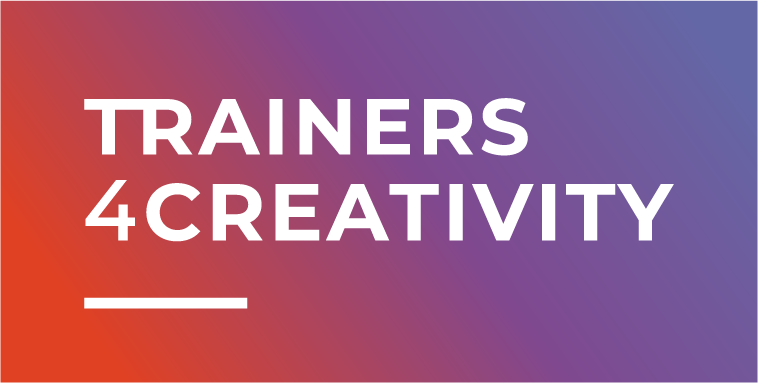Better Evaluation
Notice: Trying to access array offset on value of type bool in /var/www/vhosts/trainers4creativity.eu/httpdocs/wp-content/plugins/elementor/includes/base/widget-base.php on line 224
Notice: Undefined offset: -1 in /var/www/vhosts/trainers4creativity.eu/httpdocs/wp-content/plugins/elementor/includes/base/controls-stack.php on line 696
Descrição
Better Evaluation é uma plataforma de conhecimento e uma comunidade global. A sua visão é a de um mundo com melhores avaliações, melhores decisões e melhores resultados para as pessoas e para o planeta.
A funcionar desde 2012, o seu trabalho sobre “avaliação” inclui toda a gama de atividades, quadros e sistemas de monitorização e avaliação, e inclui avaliações de projetos, programas, políticas, produtos, redes, organizações ou estratégias. Inclui também avaliações que são conhecidas por diferentes designações, tais como avaliação de impacto, medição de impacto, retorno de investimento, entre outras. A Better Evaluation colabora com indivíduos, organizações e redes para reunir conhecimentos sobre avaliação de diferentes sectores, disciplinas, regiões, línguas e contextos.
Áreas de acessibilidade
Várias (estratégias e métodos para adaptar a avaliação às necessidades específicas dos nossos públicos-alvo)
Justificação do porquê de ser considerada uma boa prática
A Better Evaluation é, acima de tudo, uma ferramenta útil para youth workers melhorarem os seus métodos e estratégias de avaliação, com recursos disponíveis em várias línguas. Enquanto plataforma, reúne informações e orientações sobre mais de 300 métodos e processos utilizados na avaliação, sendo uma ferramenta útil que pode ajudar estes profissionais a repensar:
– A forma como avaliam os resultados e o envolvimento dos seus públicos-alvo nas suas atividades.
– A forma como avaliam os resultados e o impacto dessas atividades.
Decidimos destacar 3 métodos que consideramos particularmente úteis para o trabalho com jovens:
- Participatory Evaluation (Avaliação participativa): Um método de avaliação que coloca as partes interessadas no centro do processo de avaliação, dando-lhes a oportunidade de adaptar a avaliação às suas necessidades específicas, transformando-a numa ferramenta para ajudar os participantes a atingirem os seus objetivos e não para os desmotivar (como é frequentemente o caso em contextos de educação formal). Campilan (2000) indica que a avaliação participativa se distingue da abordagem convencional em cinco aspetos fundamentais:
– Porque é que a avaliação está a ser feita?
– Como é feita a avaliação?
– Quem está a fazer a avaliação?
– O que está a ser avaliado?
– Para quem a avaliação está a ser feita?
As vantagens de fazer uma avaliação participativa são:
– Identificar questões de avaliação relevantes a nível local
– Melhorar a exatidão e a relevância dos relatórios
– Estabelecer e explicar a causalidade
– Melhorar o desempenho do programa
– Capacitar os participantes
– Desenvolver capacidades
– Desenvolver líderes e criar equipas
– Sustentar a aprendizagem e o crescimento organizacional
- World cafe – Uma metodologia para promover o diálogo em grupo, que enfatiza o poder da simples conversação na discussão de questões e temas relevantes.
É utilizada a metáfora de um café na vida real: numa sessão de world café, os participantes – em qualquer número – são encorajados a participar numa conversa colaborativa num ambiente tipicamente modelado como um café (ou seja, uma sala mobilada com pequenas mesas, toalha de mesa, música ligeira, flores, refrescos, etc.). À medida que os participantes rodam entre as mesas ao longo de uma sessão, as conversas individuais desenvolvem-se umas a partir das outras e as ideias e questões “polinizam-se”. Ao fazê-lo, a inteligência coletiva, o foco e as experiências do grupo são trazidos para uma questão ou questões específicas com um sentido coletivo de propósito e direção.
- Impact evaluation (Avaliação de impacto) – Uma metodologia para youth workers avaliarem o seu próprio trabalho. Uma avaliação de impacto fornece informações sobre os impactos produzidos por uma intervenção.
A intervenção pode ser um pequeno ou grande projeto, um conjunto de atividades ou uma política. Uma avaliação de impacto pode ser efetuada para melhorar ou reorientar uma intervenção (ou seja, para fins formativos) ou para informar decisões sobre a continuação, interrupção, reprodução ou aumento de uma intervenção (ou seja, para fins sumativos).
A avaliação de impacto pode ser adequada quando é necessário compreender os impactos que foram produzidos. Pode não ser adequada quando a prioridade nesta fase é compreender e melhorar a qualidade da implementação.
Promotor
GEI – Global Evaluation Initiative
GEI é uma rede global de organizações e peritos que apoiam processos de monitorização e avaliação.


